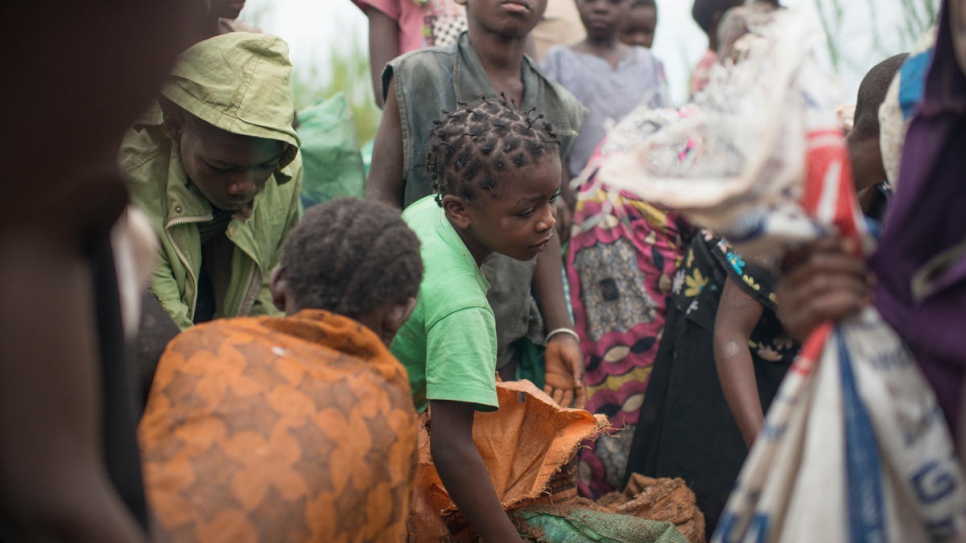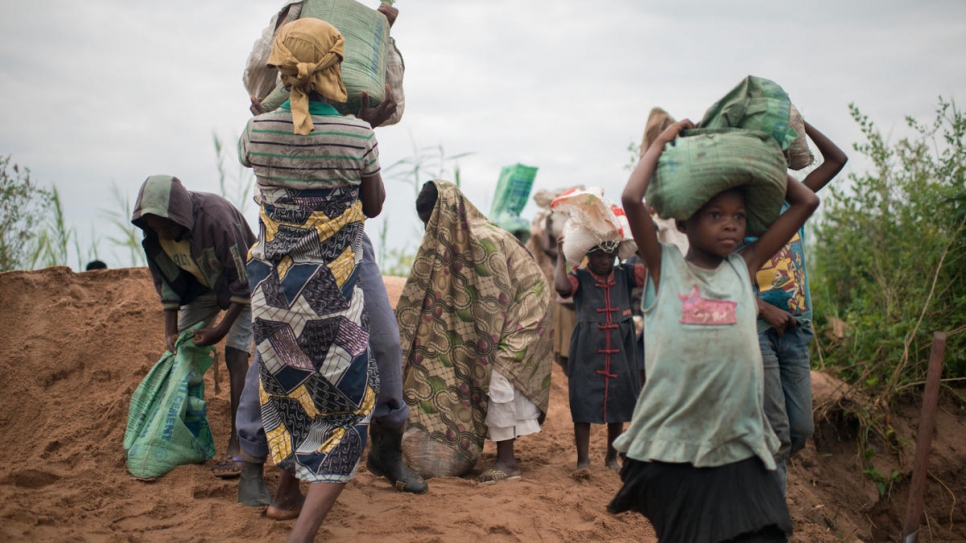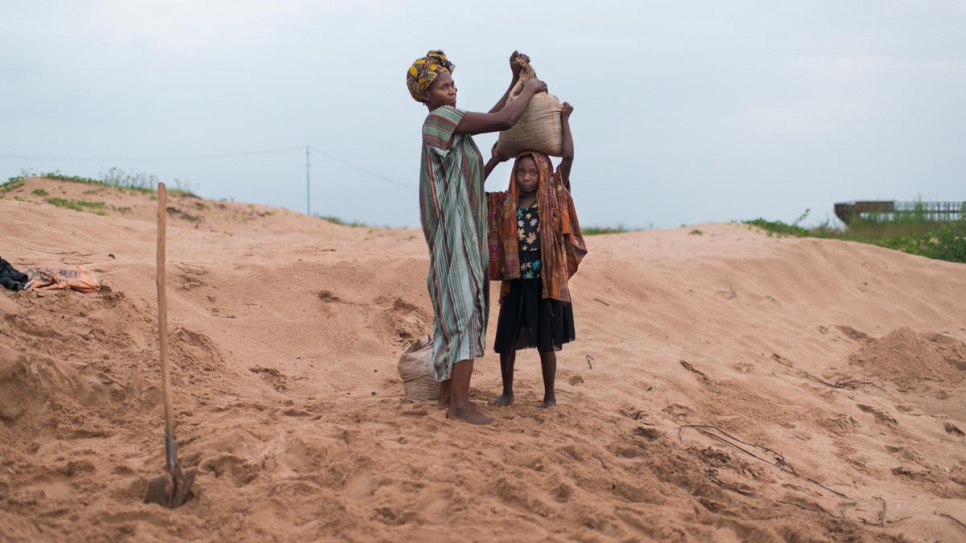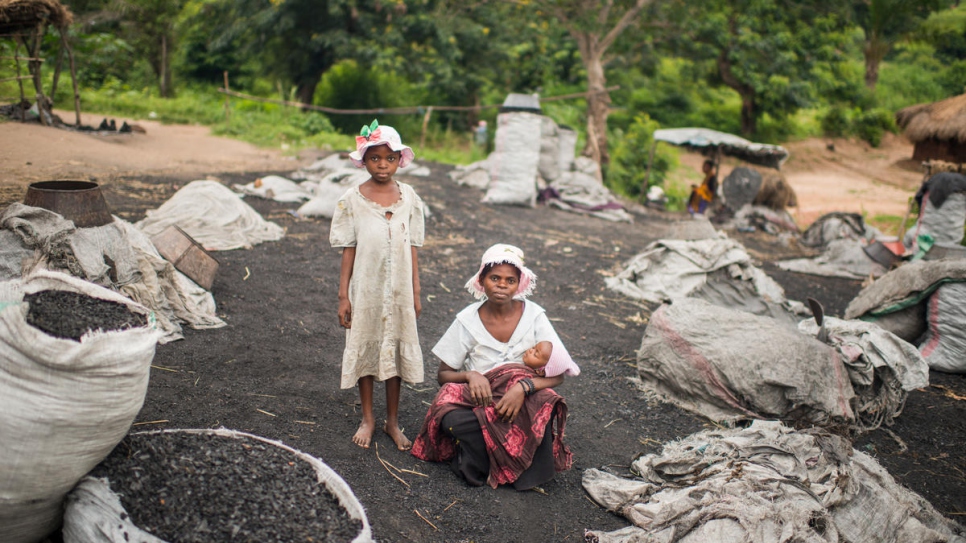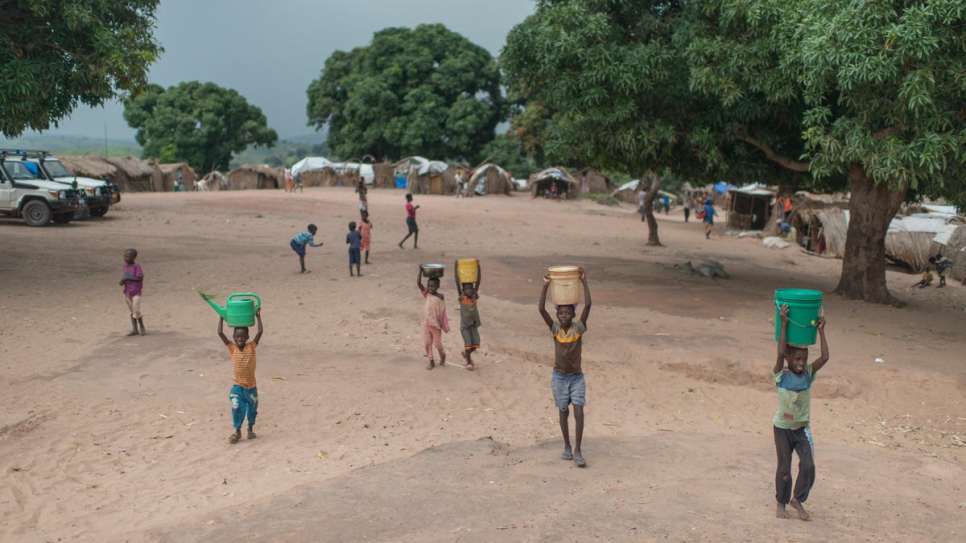Congolese children forced into cheap labour as displacement crisis worsens
People fleeing violence in Tanganyika province are finding it hard to survive, and the burden is falling on children. Instead of going to school, many work to support their families.
Françoise, 14, gets paid to carry sand from Lake Tanganyika to construction sites.
© Vania Turner producer-editor, camera / Junior D. Kannah, camera
Fourteen-year-old Françoise packs sand from the shores of Lake Tanganyika into a 25-kilogram sack and balances it carefully atop her head. It’s a task the lean teenager has come to master in the past few months.
She is not alone. Most mornings at dawn, an army of children – some barely five years old – swarm the empty streets on the outskirts of Kalemie, the capital of Tanganyika province in the south-eastern part of the Democratic Republic of the Congo. As with Françoise, years of fighting have forced them out of the classroom and into poorly paid jobs to support their families.
“All of us here used to be in school; now we work to earn money to eat,” says Françoise, picking grains of sand from her scalp. “All the children complain because the sand is heavy and we get tired. I feel sick, my legs are in pain and my head hurts all the time.”
Sand is a popular, low-cost building material in the area. On a good day, Françoise can earn up to 30 cents for every 25 kilos she carries. But even that’s not enough to help the family make ends meet, says her father, Philippe Kika Malisawa, 58, who transports sand alongside his daughter. “Our parents never made us work like this,” he recalls. “We just sat back and our father would bring us food. But now that we are displaced, we suffer tremendously.”
Scores of civilians have been forced to flee their homes. Now they are seeking refuge in squalid, overcrowded sites near and around Kalemie and in other parts of Tanganyika province. As more people struggle to sustain their livelihoods, children are being forced to work.
“I wish we could stop transporting sand and go back to school.”
UNHCR, the UN Refugee Agency, and other humanitarian agencies have provided some assistance to the displaced in Kalemie, including shelter materials and basic household items. However, underfunding and new displacement due to the conflict have made it impossible to meet their most basic needs. People are still struggling to survive and children are bearing the brunt.
“All my life has been about is fleeing war,” says Françoise, wiping sweat from her forehead. “I wish we could stop transporting sand and go back to school.”

